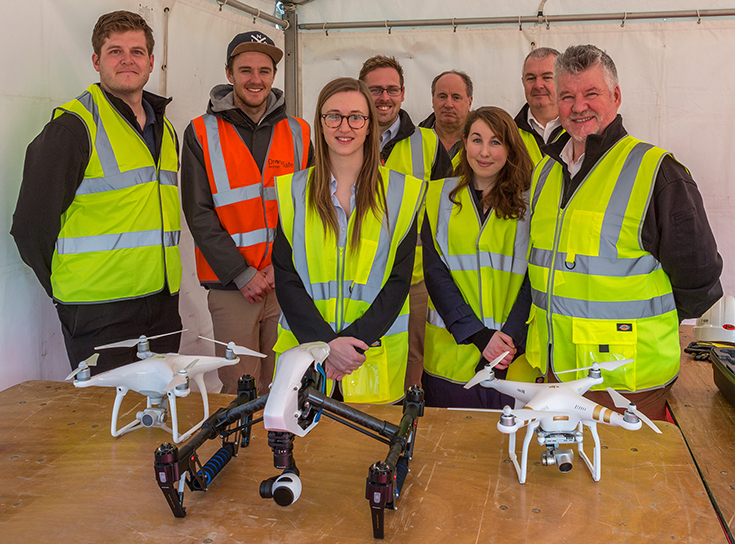Rescue drone awareness course
Drones are becoming an increasingly ubiquitous tool for emergency services around the world. However, the drones that are being purchased and utilised are quite often off-the-shelf drones rather than rescue-specific models.

These ready-to-fly drone products are commonly designed with a photographer/videographer end-user in mind. This brings about a few questions: can videography/photography drones be successfully transferred into this sector? Are they really good enough to be used as lifesaving tools? And, will we need to use them differently to a videographer or photographer end-user? The SkyBound Rescuer’s Rescue Drone Awareness Course aims to help answer these questions.
Drone expert and SAR professional Gemma Alcock says: “Even the lower end professional drones hold vast potential for an emergency service, but only if all factors that can affect performance have been fully understood and best practices have been informed accordingly.” As such, SkyBound Rescuer, of which Gemma is the founder, along with the Professional Rescue SAR academy, set out to educate emergency services on exactly how to best exploit this emerging technology during their first course, which was held at Popham Airfield, Hampshire, South England in April.
This innovative new course welcomed delegates from Dorset Police, Dorset & Wiltshire Fire Service, Dorset Search and Rescue, Wessex Flood Rescue Unit, and a researcher from the University of Exeter. Throughout the day, the delegates learnt about the factors that impact drone performance in emergency response, the present and upcoming aviation regulations that they have to abide by, how to select the correct drone equipment per agency use case, and experienced a DJI Inspire flight demonstration by UAV Insight. Alongside Gemma, it was delivered by acclaimed SAR technical adviser David Lane and UAV Insight’s drone pilot Mickey Delahunty.
The course has an ambitious schedule that compromises of 12 modules, four group exercises, and a flight demonstration; it counts as seven Continuous Professional Development (CPD) hours as granted by the Institution of Fire Engineers.
The first course was a great success and thoroughly enjoyed by all who attended, receiving an overall score of 98 per cent from delegate feedback forms.
For more details, contact the organisers here
You can read a full version of the article on which this blog is based in CRJ 12:3, published May 2017